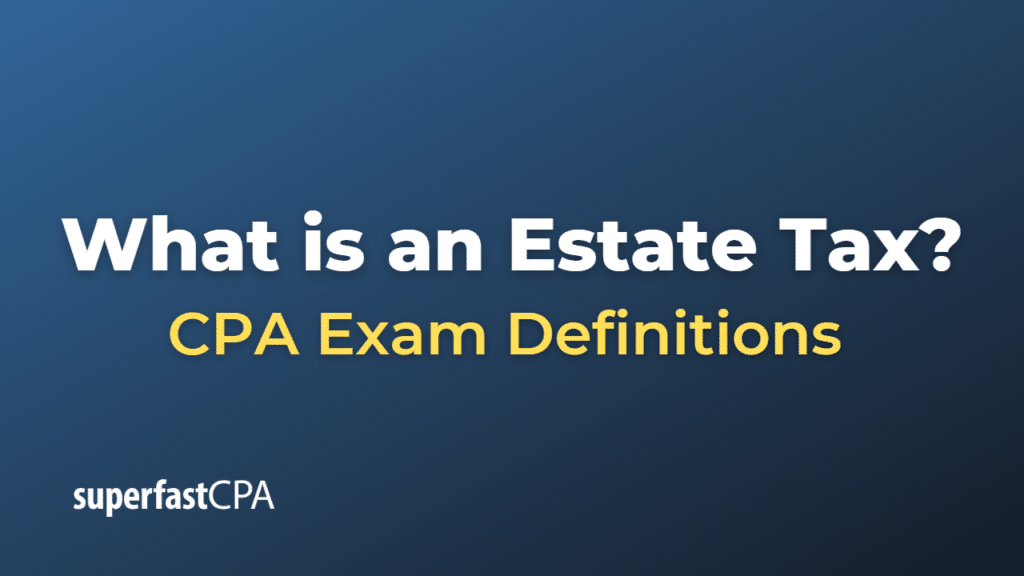Estate Tax
Estate tax is a form of tax imposed by the government on the right to transfer property at the time of death. Essentially, it’s a tax on the total value of a deceased person’s estate before the property is distributed to the heirs.
The estate tax is usually levied on the net value of the property, which includes cash, real estate, stocks, bonds, businesses, and other assets. From this gross value, deductions are allowed for certain expenses such as funeral costs, debts, administrative expenses, property passed to surviving spouses, and charitable donations, which reduces the taxable estate.
It’s important to note that not every estate is subject to this tax. In the United States, for example, the estate tax exemption was about $11.7 million per person, meaning an individual could leave $11.7 million to heirs and pay no federal estate or gift tax. A married couple could shield double that amount. Any estate that exceeds this exemption amount is subject to estate tax.
Estate tax laws and regulations can be complicated and vary widely by country and even by individual states within a country, so it’s advised to consult with legal and financial advisors when dealing with estate planning and potential estate taxes.
Example of an Estate Tax
Imagine an individual named Jane who passes away in 2023, leaving an estate valued at $12 million in total assets, including real estate, cash, and investments. For simplicity’s sake, let’s assume Jane isn’t married and she hasn’t made any taxable gifts during her lifetime.
As of my knowledge cutoff in 2021, the federal estate tax exemption in the United States is $11.7 million. If this hasn’t changed by 2023, Jane’s estate would exceed the exemption by $300,000 ($12 million – $11.7 million).
Assuming the estate tax rate is 40% (which was the top federal estate tax rate in the United States in 2021), the estate would owe federal estate tax on that $300,000. The tax would be $120,000 ($300,000 * 0.4).
After paying the estate tax, the executor of Jane’s estate would then distribute the remaining assets according to Jane’s will or, if she didn’t have a will, according to the state’s intestacy laws.
This example provides a basic overview of how estate tax works, though it’s a simplification. In reality, the calculation of estate tax can be more complex and involve more factors. It’s advisable to consult with legal and financial advisors when planning and administering an estate.













